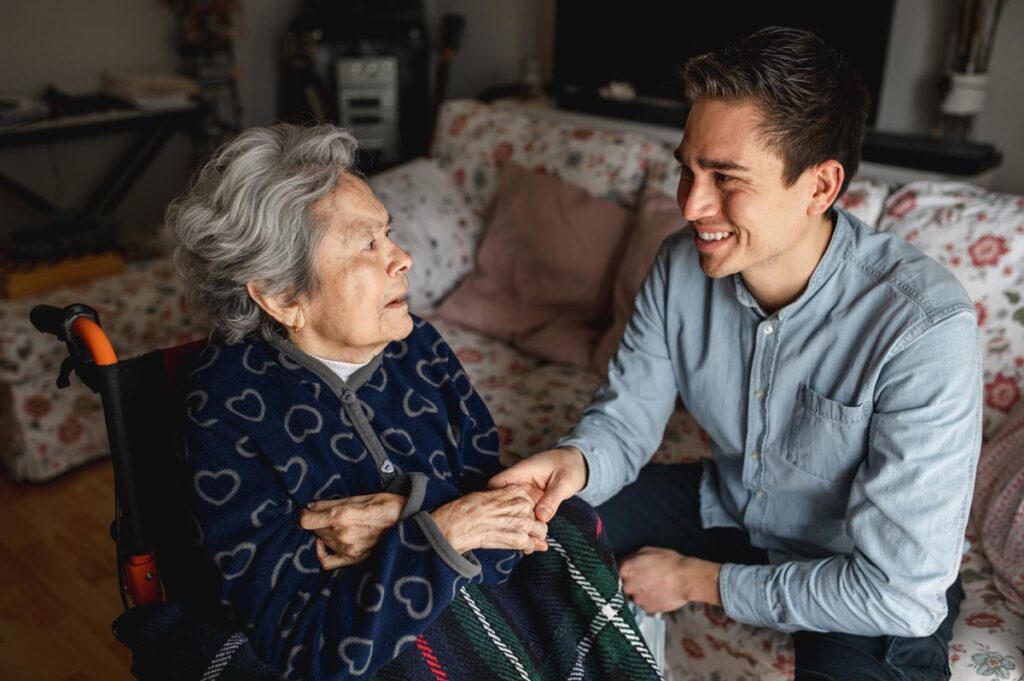There is, unfortunately, no guidebook to life. No single manual can be referred to when times get tough and advice is needed. That is not to say they aren’t resources available for guidance. In fact, a single search request on Google will likely bring up hundreds of thousands, if not millions, of results. Knowing which of these results is trustworthy is a little more complicated. This is especially true when it comes to medical information. Getting diagnosed with dementia is a scary experience, regardless of a person’s age. It is likely that they, in addition to their family and loved ones, will have many questions. Luckily, information is valuable in this scenario, and one should do everything possible to become knowledgeable about the condition. For example, there is a great deal of difference between someone with stage one dementia and someone with stage six dementia, a long list of potential causes, and an even longer list of potential memory care-based treatments. Those with early dementia are, in most cases, able to continue living their lives with minimal assistance. They may have to pursue other career options or leave the workforce entirely but can maintain a high quality of life if provided with the right level of support.
What Are Common Behaviors Associated with Dementia?
The symptoms and effects of dementia will manifest themselves differently in everyone. Some may experience extreme memory impairments, while others may experience paranoia and hallucinations. A person’s experience with dementia is highly dependent on their medical history, mental health history, and the presence of other ailments in the body which may contribute to or worsen dementia symptoms. There are many symptoms associated with dementia, some of which include:
- Confusion
- Disorientation
- Difficulty communicating
- Difficulty reasoning
- Issues with problem-solving
- Inability to complete complex tasks
- Inability to plan or organize events
- Decreased spacial awareness
- Decreased motor function
- Depression
- Anxiety
- Paranoia
- Hallucinations
- Personality changes
Because many of these symptoms can be attributed to other medical issues, early dementia can be hard to diagnose. Another factor making it difficult to diagnose dementia is an individual’s ability to hide these symptoms from friends and loved ones. That is why it is of the utmost importance to contact a medical professional as soon as these symptoms are experienced. Early diagnosis can make a world of difference here. Although there is no cure for dementia, studies have shown that there are many ways to slow the progression of symptoms. The earlier a person is diagnosed, the earlier they can start treatment.
There are many different types of dementia treatments available on the market, many of which fall under the banner of memory care and assisted living. These treatments aim to keep those with dementia active socially and in their daily routine. Those not in treatment typically become socially and emotionally withdrawn from the world around them, quickening the pace at which symptoms progress.
What Are the First Signs of Dementia Personality Changes?
Memory is not the only facet of the mind effect by dementia. Personality changes are also common. This change may be brought by a shift in psychology and chemical imbalance, but it can also be brought on by the emotional impact of living with dementia. Those who are diagnosed with early dementia still have a working memory and the ability to reason. An individual may experience feelings of shame regarding their condition, which can lead to agitation, frustration, and even anger. Some may feel embarrassed and become socially withdrawn, appearing unmotivated and emotionally detached. One of the best methods of dealing with these changes is to be open about the issues with friends, family, or a therapist. Avoiding the reality of the situation is likely to increase feelings of shame and embarrassment, which may lead to more severe personality changes.
Learn More About Early Dementia Care at Buckner Calder Woods
At Buckner Calder Woods, we want to provide the highest quality of care possible to every resident who joins our family. Our staff is dedicated and experienced in a wide variety of dementia care services and is open to any and all questions regarding our curriculum. To learn more about early dementia diagnosis, or to schedule an appointment today, contact us at 409.407.7636 or reach out online.

